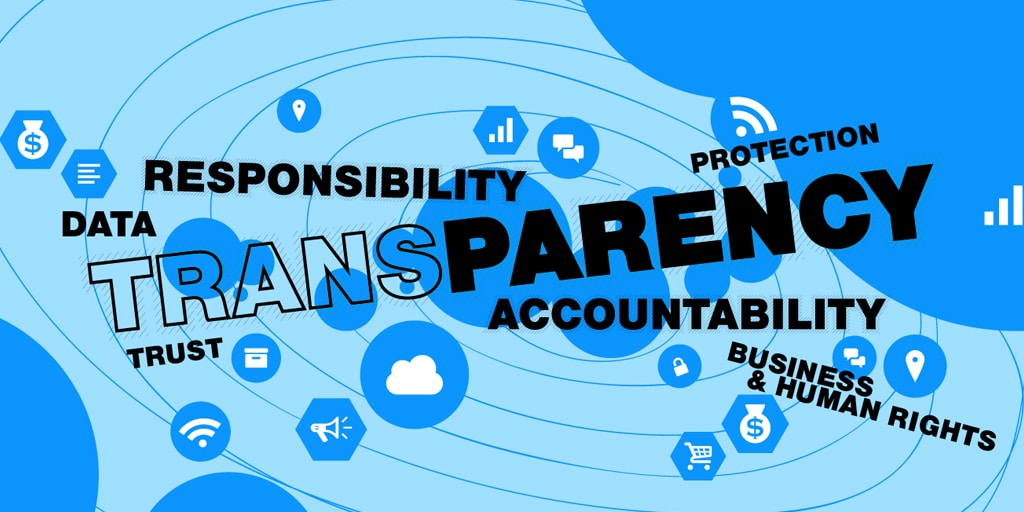As Big Tech heads into its 2023 Annual General Meeting (AGM) season, shareholders are once again putting human rights on the agenda. As we’ve previously explained, we’re seeing momentum build behind the effort to reform corporate practices across the tech sector, to hold companies accountable for the human rights impact of their products and services. Below, we take a closer look at Amazon in particular, explaining which proposals we think all Amazon shareholders should support.
Amazon is scheduled to hold its AGM on May 24. Across the many shareholder proposals filed this year, two stand out as key opportunities for Amazon shareholders to ensure that the company meets its human rights obligations and commitments.
PROPOSAL 7: REQUIRE THAT AMAZON GET AN EXTERNAL ASSESSMENT OF ITS DUE DILIGENCE PROCESS FOR SELLING ITS TECHNOLOGY SOLUTIONS
Reports indicate that Amazon sells its technology solutions to clients in countries with poor human rights records. For example:
- Amazon reportedly sells relabeled surveillance products developed by Chinese companies Dahua and Hikvision in the U.S., even though the original products have been implicated in mass surveillance, internment, torture, and forced labor of the ethnic Uyghur minority in China, and have been blocklisted by the U.S. government;
- Amazon supplies technology and services for the Israeli government’s “Project Nimbus,” a decision that sparked protests among its own employees. Israeli authorities use Amazon Web Services (AWS) to support the apartheid system under which Palestinians are surveilled, unlawfully detained, and tortured. The company’s technology is therefore facilitating the expansion of illegal settlements and enforcement of segregation; and
- Amazon opened an AWS data center in the United Arab Emirates, a country that deploys a state surveillance apparatus targeting human rights defenders, journalists, and political dissidents. The company opened its first data center in the region in Bahrain, which also has a poor human rights record.
With Proposal 7, Amazon shareholders are asking Amazon’s Board of Directors to commission an external assessment of the company’s customer due diligence process, seeking to understand how Amazon evaluates the risk that its products and services will be misused. Notably, the company’s response to the shareholder proposal makes no mention of practicing customer due diligence, nor is there any relevant information about the process on its website. Instead, the company refers to training and contractual mitigations as the primary methods for preventing product misuse. This is hardly sufficient to prevent potentially severe human rights violations.
“Inadequate due diligence presents material privacy and data security risks, as well as legal, regulatory, and reputational risks. These risks are present even if surveillance products are used according to Amazon’s guidelines on responsible use,” says Courtney Wicks, Executive Director at Investor Advocates for Social Justice, one of the groups filing the proposal. “This is an opportunity for Amazon to demonstrate to its shareholders that the company takes human rights and risk mitigation seriously, and will therefore ensure it does not supply surveillance products to customers who will use them to violate human rights.”
Shareholders should be able to rely on Amazon to have measures in place to adequately and sufficiently evaluate whether their sale of products and services to customers across the globe will lead to misuse and facilitate human rights violations. We strongly encourage all Amazon shareholders to vote in favor of Proposal 7.
PROPOSAL 8: INCREASE TRANSPARENCY ON CONTENT REMOVAL TO BRING AMAZON IN LINE WITH ITS PEERS AND INTERNATIONAL STANDARDS
Amazon has reportedly removed products and content from the Amazon.com platform at the behest of authoritarian regimes, without publicly disclosing the removal in its standard transparency reporting. For example:
- The New York Times reports that Amazon restricted search results for LGBTQ+-related products in the United Arab Emirates after the government threatened the company with penalties; and
- According to a Reuters report, Amazon stopped allowing customer ratings and reviews in China as “part of a deeper, decade-long effort…to win favor in Beijing to protect and grow its business.”
With Proposal 8, Amazon shareholders are asking Amazon to update its transparency reporting to provide more detailed quantitative disclosures on the removal or restriction of content or products due to government requests.
Amazon shareholders have good reason to be concerned about the company’s lack of transparency. Its practices fall far short of international standards. It also trails far behind peer companies Google and Meta on transparency regarding government or law enforcement orders for content removal or restriction. Even Amazon’s main ecommerce competitor, eBay, publishes annual reports that reveal significantly more detail about the listings the company removes than Amazon provides about its content or product removal.
“Does Amazon’s bold statement that it ‘believes the people, workers, and communities who support our business should be treated with fundamental dignity and respect’ hold any water when it comes to government censorship demands?” asks Michael Connor, Executive Director at Open MIC, one of the co-filers for Proposal 8. “If Amazon chooses to enter markets where human rights risks are significant, Amazon’s shareholders have a right to know how the company will respond to content removal demands in those countries. At a bare minimum, Amazon should stay on par with its peers and the international human rights standards it claims to uphold.”
The bottom line: Amazon should urgently update and improve its transparency reporting. We strongly encourage all Amazon shareholders to vote in favor of Proposal 8.
WHAT’S NEXT?
Interested in learning more about shareholder initiatives, Big Tech, and human rights? Stay tuned for our recommendations on proposals for Meta and Alphabet.
